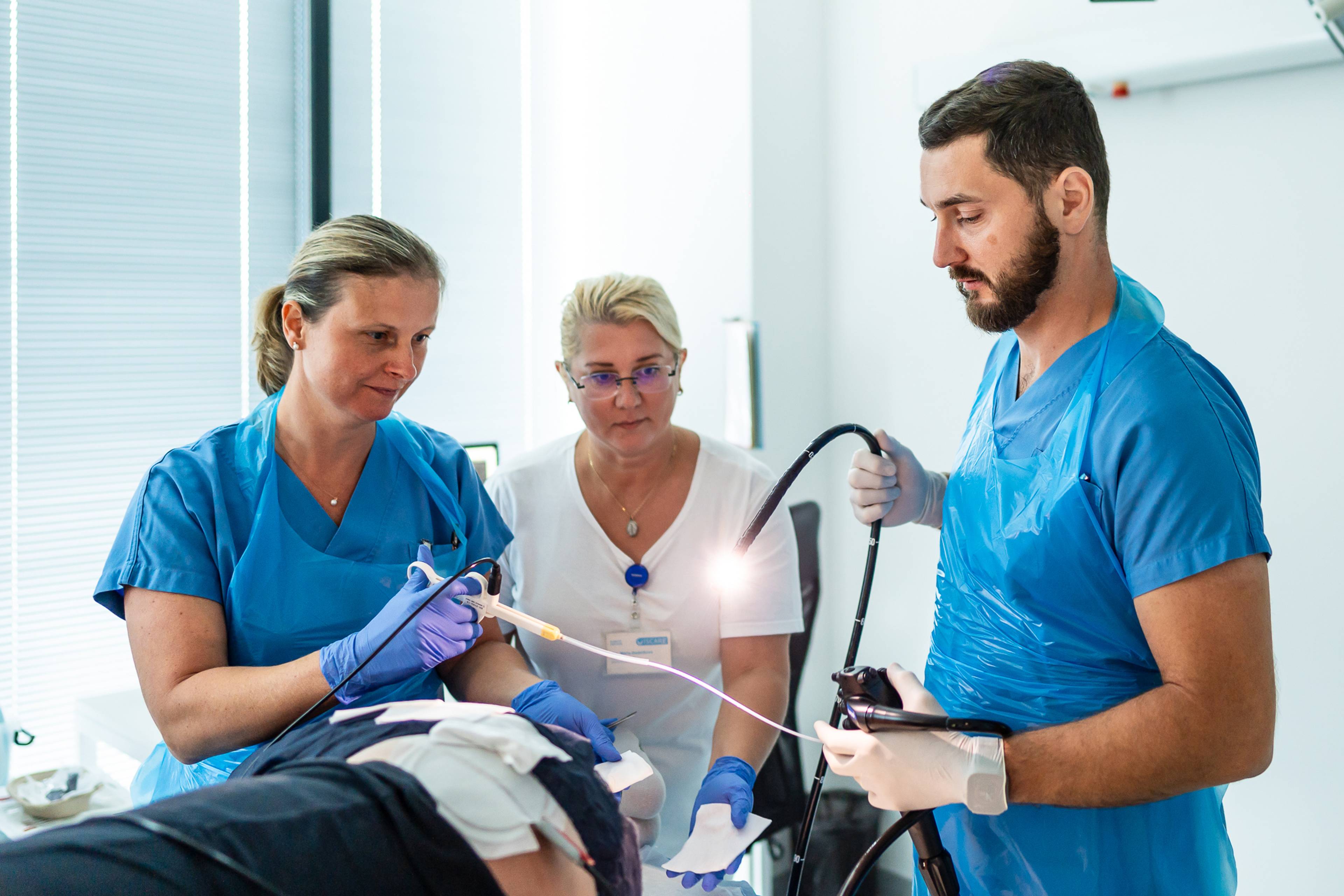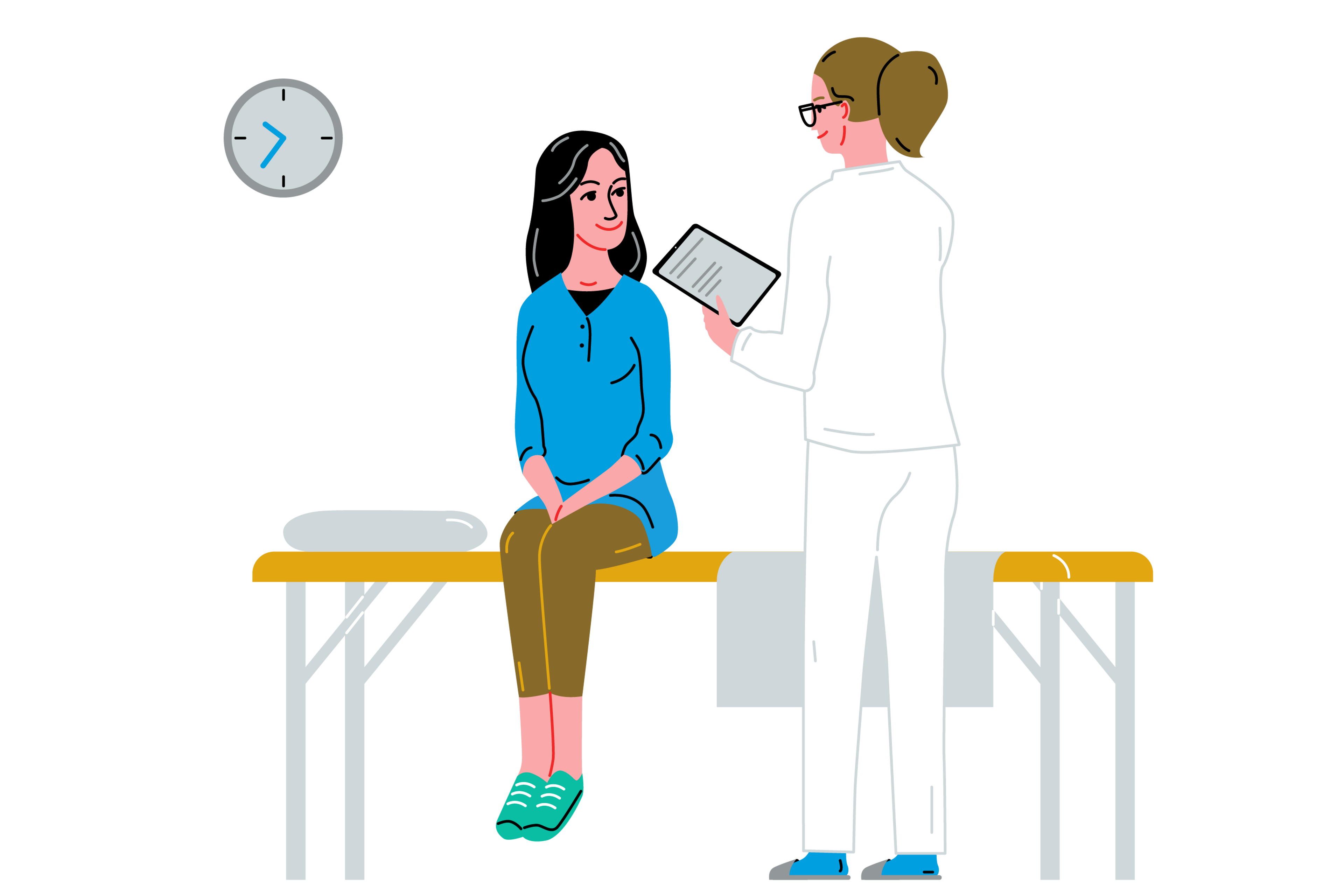Definition and Results of Biological Therapy
In recent years, an innovative therapy known as biological treatment has also been introduced into clinical practice. This involves the administration of drugs that block the development of inflammatory reactions during intestinal inflammation, quickly leading to the alleviation of inflammation and the resolution of symptoms.
- Biological therapy should be administered at a facility with sufficient experience with both diseases and this type of medication. At the start of treatment, it is essential to know the extent and location of the disease. It is particularly important to have as much information as possible about the condition of the fistulas and to rule out any abscesses in the abdominal cavity and small pelvis.
- Biological therapy refers to substances of a natural nature or molecules derived from substances found in the human body. These substances specifically suppress specific sites of the inflammatory process in the body. Specifically, these are various types of antibodies – protein molecules that bind to substances that cause or promote the inflammatory process.
- This binding leads to a reduction in inflammatory activity, which has a positive effect on patients in the form of reduced tissue swelling, ulcer healing, cessation of bleeding, and subsequently the alleviation or complete disappearance of subjective symptoms.
Payment for biological treatment
- ISCARE clinic works closely with all major health insurance companies, with the exception of 213 RBP - Revírní bratrská pokladna, which does not cover biological treatment.
- Patients can also choose to pay for treatment themselves.
- For more information, see the Price List.
Criteria for administation of Biological Therapy
- Biological treatment is usually considered when conventional treatment methods are ineffective or associated with side effects. This type of situation occurs particularly in patients who are dependent on corticosteroids, where doses cannot be reduced, or when corticosteroid therapy is ineffective.
- Treatment should be started early, especially in patients at high risk of complications.
- Specific criteria are constantly evolving as knowledge about the effects and risks of this therapy increases. The basic criterion is the activity of the inflammation itself at the start of therapy, which ensures a high probability of a favorable effect.
- The second group consists of patients with perianal manifestations of Crohn's disease, especially fistulas, requiring combined treatment with biological therapy and surgical treatment.
- The possibilities for the use of biological treatment are expanding, and in the near future it may also be applied to patients with complicated courses after surgery.
Substances used
- Since 1998, antibodies against tumor necrosis factor alpha (TNF-α), such as infliximab, adalimumab, and certolizumab pegol, have been used in the treatment of idiopathic intestinal inflammation.
- Golimumab has been available since 2014 and vedolizumab since 2016. Most recently, ustekinumab was added in 2018, expanding treatment options.
Treatment Efficacy
- Biological therapy is generally the most effective form of drug treatment for intestinal inflammation.
- The onset of action is rapid, although long-term maintenance of the effect is challenging, especially with infliximab and adalimumab.
Clinical Trials
- Also known as clinical evaluations, these represent a key step in testing the safety and efficacy of new treatments.
- Participation in these trials is voluntary, and patients entering them express their consent by signing an informed consent form.
- Before entering the study, the patient receives written information that includes the study design, treatment plan, expected examinations, and the possible risks and benefits of participation.
- Patients have the opportunity to access the latest treatments that are not yet available as standard.
- People in clinical trials are carefully monitored, which not only provides the necessary information for the sponsor, but also greater awareness of all the possible effects of the drug being administered.
- Treatment and sometimes related examinations are paid for by the sponsor of the trial, which can be a significant advantage for participants.
- Before entering the study, the patient receives written information that includes the study design, treatment plan, expected examinations, and the possible risks and benefits of participation.
Take a look
What it looks like
Gastroenterology ISCARE






